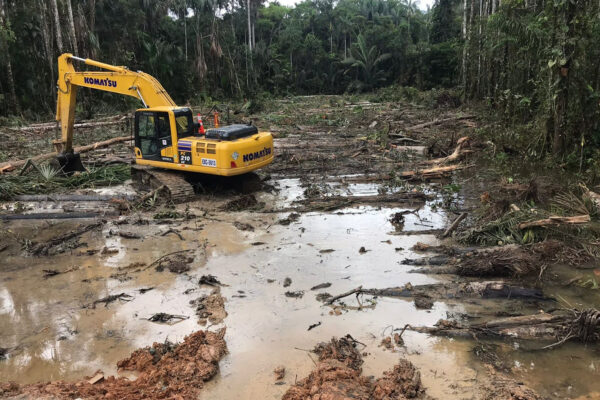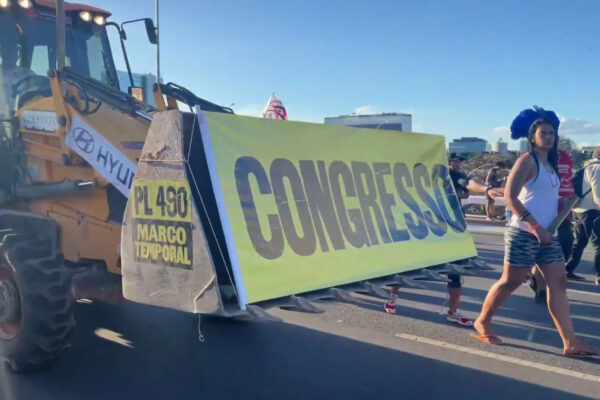Amazon Watch has just released a new Mega-project report entitled: “New Pipelines Threaten Intact Amazon Rainforest in Brazil”. The 12-page report examines plans to construct two new pipelines to expand oil and gas production from the Urucu and Jurua gas fields in the heart of the Brazilian Amazon. The report details the detrimental social and environmental consequences of the $1.7 billion gas project which is part of President Cardoso’s $45 billion economic development program Avança Brasil (Advance Brazil).
One of Cardoso’s riskiest and least talked about schemes, the construction of pipelines, roads and related infrastructure will link the two largest cities in the Brazilian Amazon – -Manaus and Porto Velho – -to the heart Amazon wilderness. Over 400 miles (700 km) upriver from Manaus, the two new pipelines would extend 325 miles (550 km) from Urucu to Porto Velho (Rondonia) and 245 miles (420 km) from Coari to Manaus (Amazonas).
Estimated total investment required stands at $1.7 billion. Exact financial arrangements for the two new pipeline extensions have yet to be finalized. Key players include GasPetro, a 100 % subsidiary of Petrobras, El Paso Energy Internacional, Halliburton, Japan Exim Bank, Schlumberger, Techint Engineering, and the state-owned Brazilian National Development Bank (BNDES).
Critics are calling attention to the adverse impacts of constructing pipelines through intact lowland rainforests, flooded forests, and savannas – – areas described by Brazilian and international scientists as “the highest priority for biodiversity conservation.” Greater access to remote forests will increase illegal logging and colonization in protected areas affected by the pipeline. Vulnerable isolated indigenous groups living in the area including the Apurina, Paumari, Deni and Juma peoples will experience acute social and environmental pressures. The poor record of companies involved intensifies local fears – El Paso Energy International recently faced legal action over the licensing of its Porto Velho power plant which seriously polluted a residential area home to 8,000 families.
A broad wave of resistance is swelling against the Urucu-Jurua project. Local indigenous and environmental groups are demanding extensive public hearings in all major communities along the pipeline route. International NGOs are responding to local calls for international support in blocking financing for the project. Opponents argue that alternative river transport is preferable to pipeline construction. Amazon Watch joins local groups in calling for consideration of alternative energy sources to meet the needs of the region. The Urucu gas reserves will be exhausted in about 15 years, yet the impacts of the project will be irreversible. The Urucu energy supply will boost energy consumption in Brazil, creating levels of demand that will have to be met long after Urucu’s reserves dry up.













